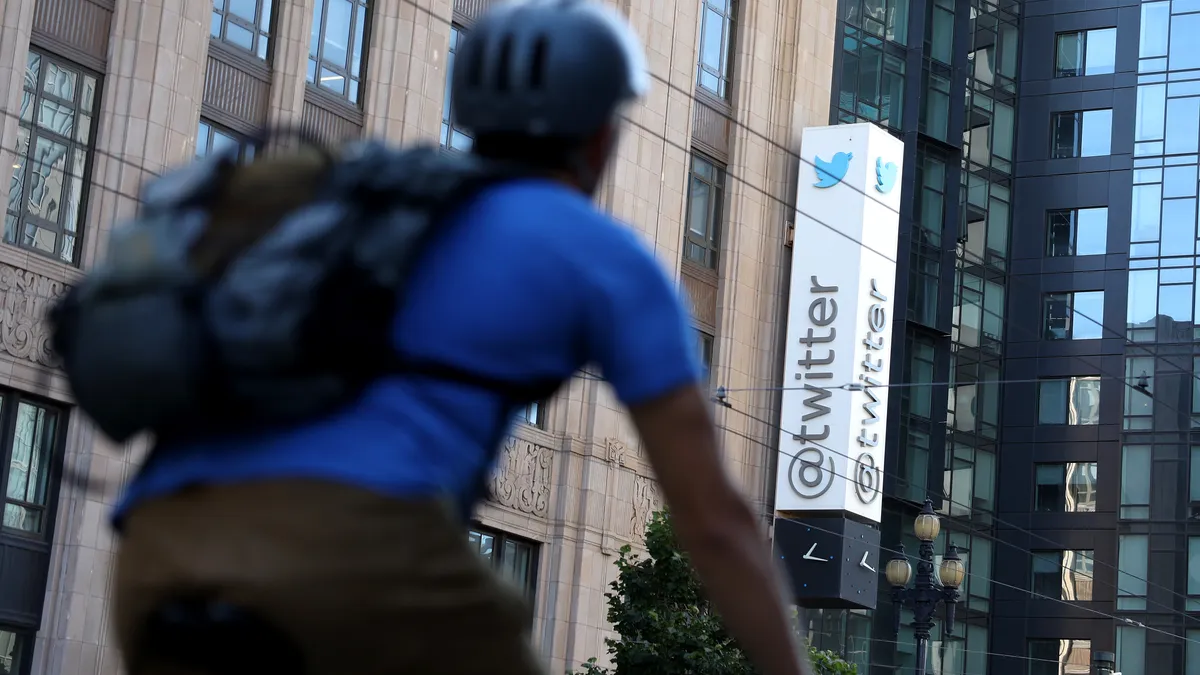The lawyer representing a group of employees laid off shortly after Twitter changed hands is attracting media attention for a December 1 letter to Elon Musk that coats its legal threats in a layer of snark that the social media site’s new owner might appreciate.
“I’m sure you’ve been expecting this,” Akiva Cohen of Kamerman, Uncyk, Soniker & Klein said in the letter asking Musk to honor laid-off employees’ severance agreements. “Ever since you took over Twitter, you’ve been attempting to tap-dance your way out of Twitter’s binding obligations to its employees.”
Cohen said he’s going to help his clients arbitrate each of their complaints against the company individually if they’re not given the severance package they were promised in the merger agreement that Twitter and Musk signed in April.
If that happens, Cohen said, Twitter is on the hook to pay for potentially thousands of arbitrations and each one’s arbitrator at a cost that will exceed what the company would have paid out had it honored the severance terms.
“Look, you have time to avoid all this,” Cohen said. “You can still choose to keep your word, and Twitter’s.”
Mass lay-offs
Musk caused a stir in early November when he reportedly laid off roughly half the company’s employees just days after taking over the company.
Critics say he structured the layoffs as non-paid leave to avoid triggering the federal Worker Adjustment and Retraining Notification (WARN) Act, which requires employers to give workers in a mass lay-off at least 60-day notice.
Under the terms of the merger agreement, Cohen said, Twitter is supposed to give laid-off employees who worked through the transaction two months of salary, accelerated vesting of their restricted stock at $54.20 a share, payment of prorated bonuses and continued contributions to their healthcare plans.
What Musk offered instead, Cohen said, both to those who were laid off immediately and those who were let go in a second, voluntary round, is one month of salary, no accelerated vesting of stocks, no bonus and no contributions to their healthcare plans.
“The severance and benefits you’ve since offered … [fall] far, far short of your promises,” Cohen said.
In Musk’s favor, there’s a term in the merger agreement that says employees aren’t third-party beneficiaries to the contract, which means they can’t go after the company for performance of what they’re owed. But, Cohen said, asserting the employees aren’t third-party beneficiaries doesn’t by itself mean they aren’t; it’s up to a court to decide if they meet the criteria for establishing that fact.
“Delaware law doesn’t treat these sort of recitals as dispositive,” said Cohen, referring to the Delaware Court of the Chancery where the legal tussle between Musk and Twitter occurred when Musk was threatening to pull out of the deal. “Running through the three factor test for third party beneficiary status is going to favor my clients, not you.”
Even if Musk wins that argument, Cohen said, the fact that Musk insisted that the clause be included in the merger agreement suggests he had planned all along not to honor the severance packages employees were promised.
“Twitter can’t promise its employees a severance package to get them to stay at the company through the merger, and then renege on that promise once they do,” he said.
“You were always planning on playing this game,” he said, “so we’ll be including a cause of action for fraud in our arbitration demands – and seeking punitive damages on top of pre- and post-judgment interest.”
The arbitration demands will start if Musk doesn’t unequivocally confirm by a date certain he intends to provide full severance to the former employees.
“You can double down on breaking your word and screwing over your ex-employees as they head into the holidays,” he said. “If so, deposing you will be a joy, and you should be aware that Washington law, among others that will apply, will allow us to obtain an award against you, personally, and not just Twitter the company.”
Twitter appears to no longer employ a communications contact to offer comment.























